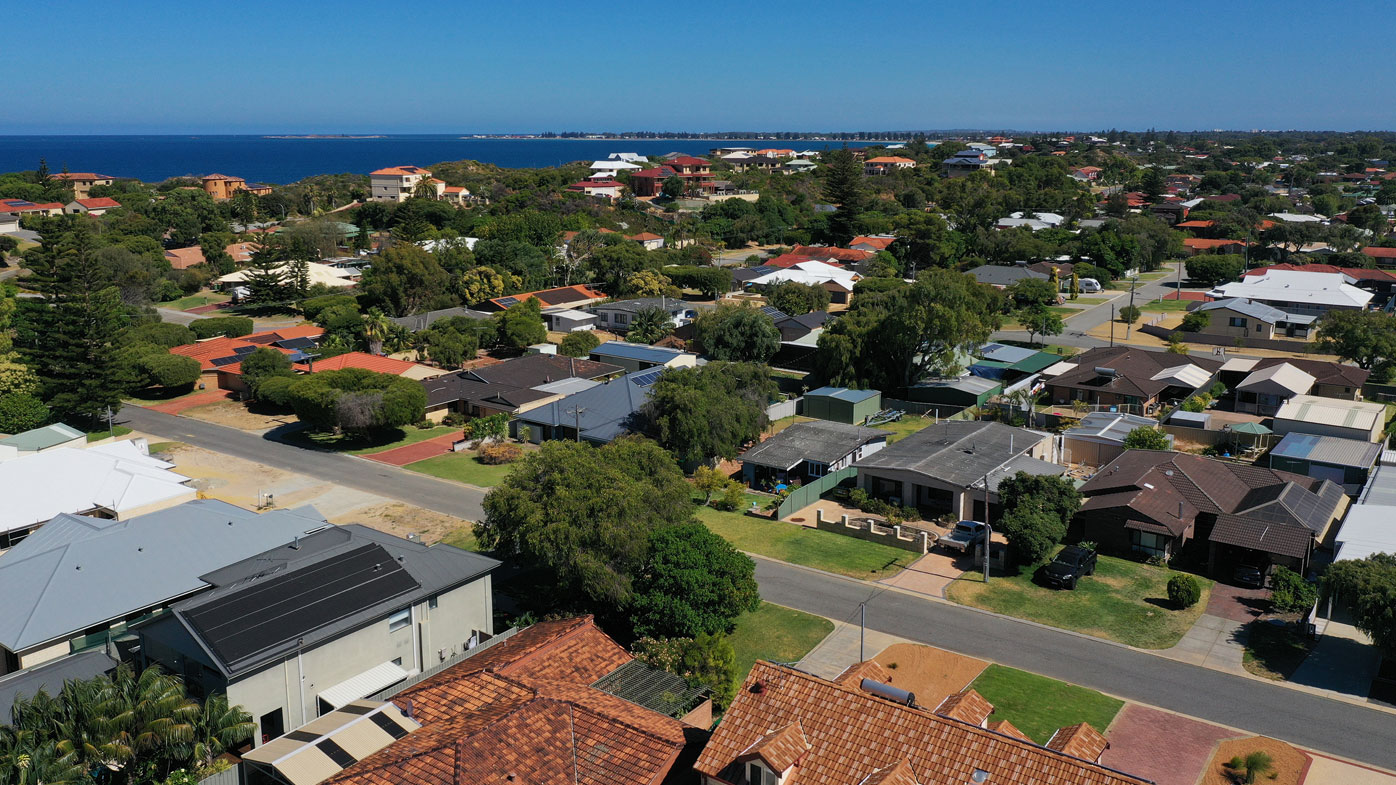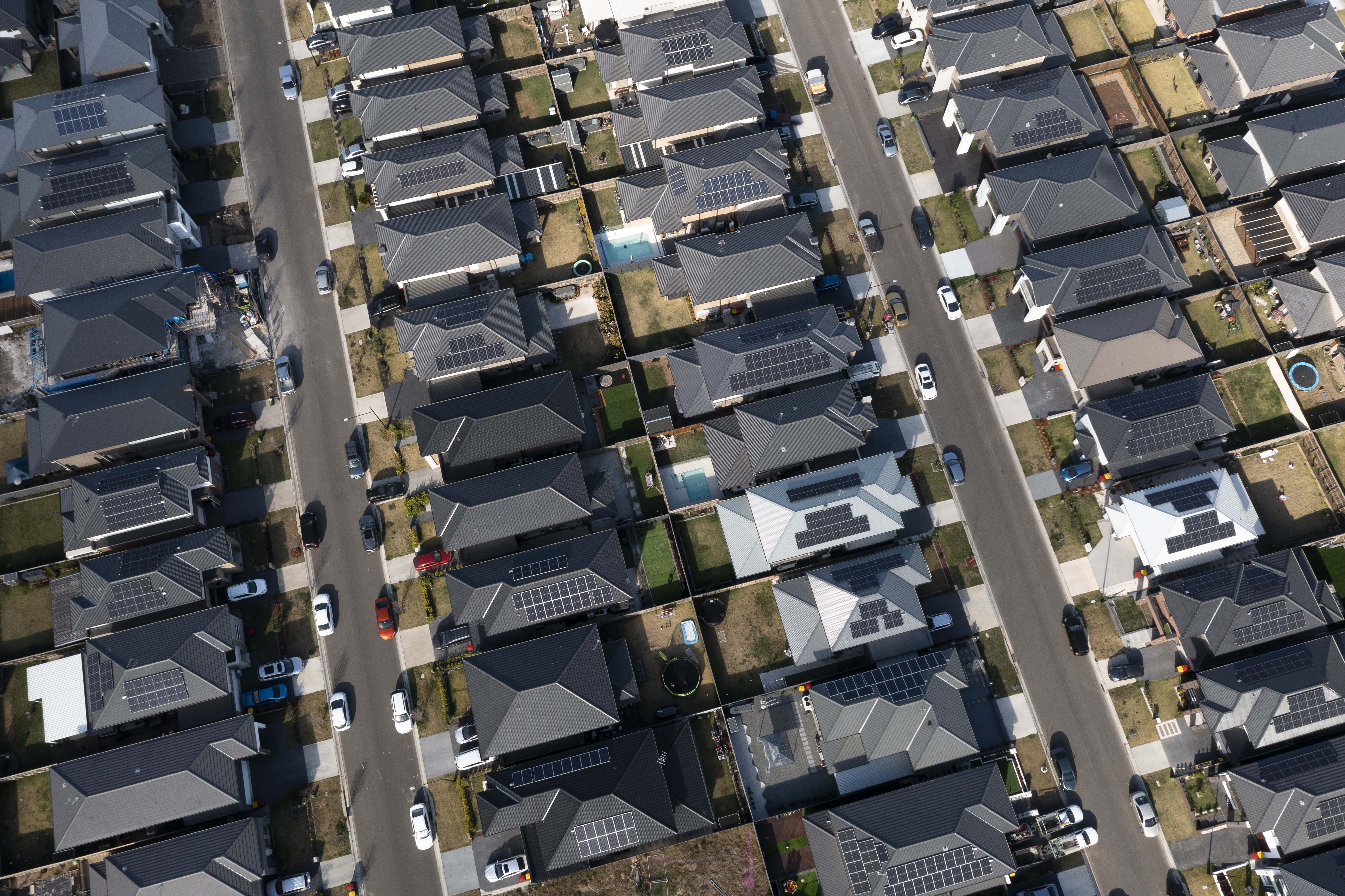As rental vacancies plunge to record lows across the country, below 1 per cent in some areas, rents are climbing across capital cities and the regions.
While landlords have benefited from the situation and "stunning" rent increases, UNSW City Futures Research Centre's Dr Chris Martin said renters, many who are low income households, are struggling.
Against this skewed backdrop, Martin said it was time to talk rent control in Australia.

READ MORE: The Aussie neighbourhoods worst hit by mortgage stress
"We currently have very light regulation of rents during tenancies, in terms of frequency of increases and 'excessive to market' provisions, and there's no regulation of rents at the beginning of tenancies at all," he said.
"It's just whatever the market will bear."
Greater rent regulation, including capping the amounts rents can increase during tenancies, could be one way to help relieve pressure on renters, he said.
"Proper rent control hasn't been discussed for a while in Australia, but it's something that should be on the research and policy agenda."
However, the chief executive of a property company which represents home buyers claimed the situation for renters will only get worse if landlords are targeted more heavily by further government intervention.
BuyersBuyers boss Pete Wargent said Australia was already following some of Ireland's policy "mistakes" which he said would lead to an even greater shortage of rentals.
Wargent said "countless media articles" were chronicling Ireland's rental market situation, which followed a "series of measures to target so-termed 'greedy landlords.'"
Irish legislation included rent controls, changes to tax policy to restrict the deductibility of interest, and a moratorium on evictions, he said.
"The inevitable result has been a chronic shortage of rentals and massive queues outside properties for rent."
He said Irish landlords were leaving "the market in droves" due to increasing regulation and property taxes.
Australia and Ireland have both struggled to maintain adequate social housing supply.
But Wargent said regulations in Ireland had made it increasingly challenging for "private landlords to pick up the slack".
"Australia isn't at such a crisis point just yet, but things are heading in that direction."
Wargent said rent controls could ultimately negatively impact the market.
But UNSW professor Martin said housing should be regulated, like many other essential goods or services.
Property was often treated as a means to grow wealth rather than a fundamental need, he said.
"There should be regulation of rents in principle because everyone needs housing, and the consequences of not having it are dire."
Regulating rents would help ease a significant cost of living pressure, he said.
"Rents are increasing but not the quality or output of the housing service," Martin said.
"This is the problem with property investment: it promises that you can make a lot of money doing absolutely nothing.
"A landlord just happens to have acquired property in a place that has become more desirable.
"In almost all cases, the dwelling quality is declining while they make more gains."
READ: Landlord reveals he owns almost 300 properties in talkback radio call

According to latest rental data from Domain, the national vacancy rate fell to its lowest point on record after four consecutive months of holding steady.
"The rental market remains firmly in favour of landlords' with the number of rental listings sitting at its lowest point on record," the report said.
"This means tenants are likely to face further increases in asking rent."
Sydney dropped to a record low vacancy rate of 1.3 per cent, exacerbating worsening rental conditions and a highly competitive environment.
Melbourne's vacancy rate dropped for the seventh consecutive month to 1.4 per cent, the lowest point since March 2019.
According to Domain, Brisbane remains at an all-time low of 0.6 per cent, while Perth and Adelaide hit record lows of 0.5 per cent and 0.2 per cent, respectively.
https://omny.fm/shows/ben-fordham-full-show/caller-reveals-unbelievable-amount-of-investment-p/embedWargent said the rental market pressures were not the result of any one policy, but the combined result of multiple factors.
"It's the death of a thousand cuts for many small landlords at the moment."
The Reserve Bank meets tomorrow, where it is expected to again hike rates.
If that eventuates, property owners with mortgages will face tougher repayments.
Are you affected? Email msaunokonoko@nine.com.au
